Three-judge panel rules two sections of Extradition Act as valid
PUTRAJAYA: The Court of Appeal has allowed an appeal by the Home Ministry and four others to reinstate two provisions in the Extradition Act 1992 previously struck down by the High Court.
This ruling overturned the High Court’s decision last year which ruled in favour of businessmen Ling Yang Ching and Wong Ong Hua’s suit regarding the validity of certain provisions in the Extradition Act 1992.
According to Bernama, a three-judge panel led by Justice Datuk Azizah Nawawi, ruled that the two sections are valid and do not contravene the provision of judicial power under Article 121 (1) of the Federal Constitution, as well as Articles 4, 5, 8 and 9 concerning fundamental liberties.
In allowing the appeal by the public prosecutor, Home Minister, Home Ministry and the Malaysian government, Justice Azizah said extradition proceedings were not intended to determine the guilt of a person but the sufficiency of evidence for extradition purposes.
In setting aside the decision of the High Court, Justice Azizah said: “We find the High Court (judge) has erred in law in his decision, warranting appellate intervention.”
In 2021, businessmen Ling and Wong, sought by the US Department of Justice for their alleged involvement in a major hacking syndicate, filed a lawsuit asking the High Court to determine several constitutional questions on the validity of the extradition law.
In January last year, High Court judge Datuk Wan Ahmad Farid Wan Salleh struck down Sections 4 and 20 of the Act after ruling the provisions contravened Article 121(1) of the Federal Constitution and the fundamental liberties of the businessmen.
Section 4 deals with the Home Minister’s power to direct the extradition of a suspect to face criminal charges in a requesting country.
Section 20 states the court must commit the suspect to detention, pending the minister’s order to surrender him.
The US government wanted them to face charges in the District of Columbia for allegedly running a global hacking operation to steal identities, video game technology and plant ransomware, as well as spy on Hong Kong activists.
They were produced before a Sessions Court for the government to secure extradition orders.
In their application to the High Court, they alleged that both provisions of the Extradition Act violated articles in the Constitution that touch on fundamental liberties and judicial power.
Senior federal counsel Shamsul Bolhassan and Liew Horng Bin appeared for the public prosecutor, Home Minister, Home Ministry and the Malaysian government while lawyer Tey Jun Ren acted for the businessmen.
Tey told the media that he would get instructions from his clients on whether to seek leave at the Federal Court to appeal yesterday’s ruling.


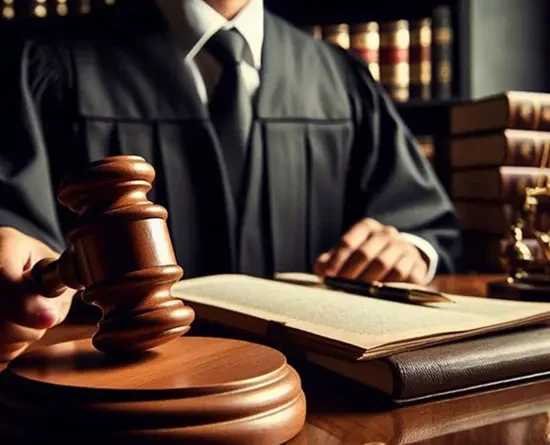


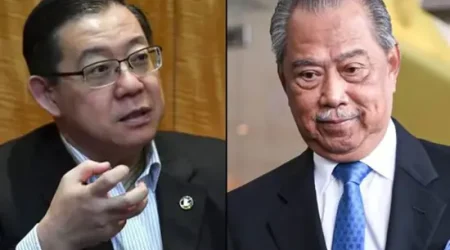


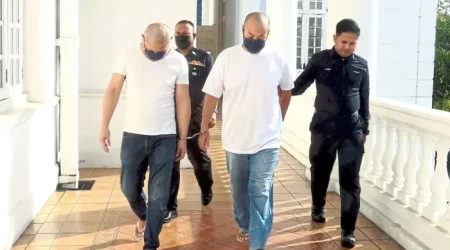
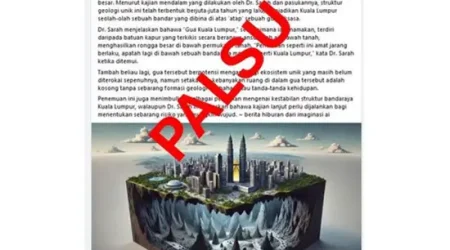

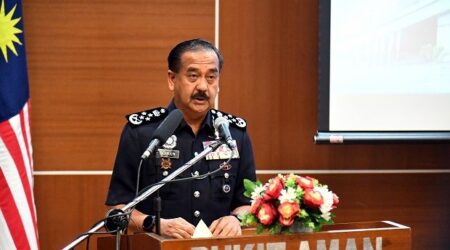
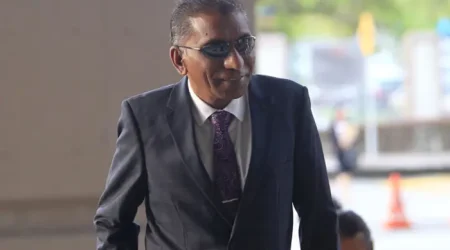
Leave a Reply